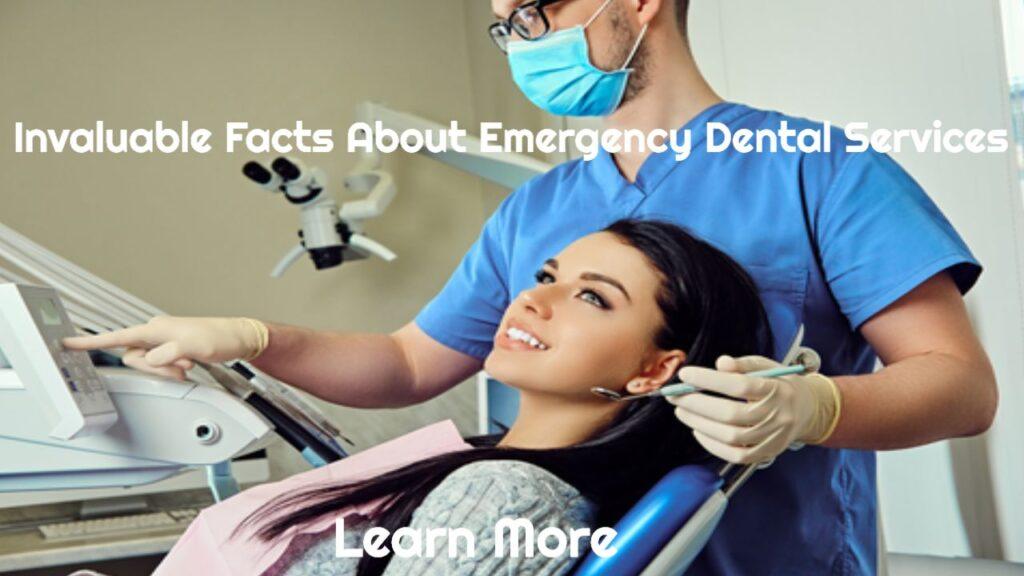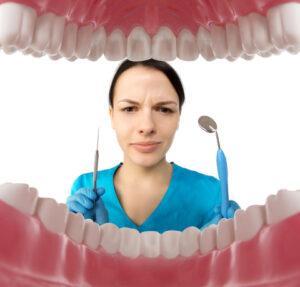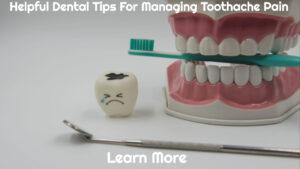Emergency Dental Services – Facts You Need To Know
Dentists must respond to unexpected dental emergencies as soon as possible in order to save the patient's life. These unanticipated situations can have life-threatening repercussions for some people, particularly if the damaged tooth is a wisdom tooth. Dental professionals can help persons suffering from toothaches, swollen gums, and dislodged teeth avoid lasting damage and relieve extreme discomfort.
Dental patients must determine the underlying cause of the current problem. The doctor then conducts a comprehensive assessment of the problematic area before the dentist provides treatments. Patients can understand when to schedule an after-hours visit by examining details about a dental emergency.
What Constitutes a Dental Emergency?
A dental emergency is defined as a sudden dental issue that causes extreme pain or discomfort and cannot be treated until the sufferer can make an appointment. If these unexpected situations arise while the office is closed, most dental experts will provide an after-hours phone number.
However, if a client needs assistance when the office is open, the staff can accommodate the individual into the existing timetable. Patients receive rapid care when it is most required with emergency dentistry.
How to Know If It's a Dental Emergency
The first indicator of a dental emergency is significant pain and discomfort that over-the-counter pain relievers cannot alleviate. Following that, if the person has a dislodged tooth, the tooth must be reset within the first 24-hours by a dental specialist. Finally, if a person's teeth are loose, there are signs of an infection, or he or she is bleeding around a tooth or from the gums, the situation necessitates quick emergency dentistry.
When Should I Visit an Emergency Room?
Some dental crises are life-threatening, and if the dental office is closed, the client must travel to the emergency hospital. Wisdom teeth can become impacted or diseased at any time. An infection has the potential to spread and enter the bloodstream.
When an infection enters the bloodstream, the person must begin antibiotics immediately and may require IV drugs from a hospital. The hospital personnel can contact the patient's dentist and advise him or her of the infection.
What Doesn't Qualify As A Dental Emergency?
If a person can handle the pain and discomfort using over-the-counter pain relievers, the condition is not considered an emergency. Severe toothaches, on the other hand, frequently involve an exposed nerve and necessitate the use of prescription drugs.
The severity of pain determines whether or not a visit to the dentist is required. If the tooth is not in danger, there is no infection, and the situation will not result in permanent loss, the patient can contact the dentist during regular business hours and schedule an appointment.
Typical Dental Emergencies
Unexplained toothaches, swelling or bleeding gums, swollen jaws or mouth, exposed nerves, diseased wisdom teeth, and dislodged teeth are the most common dental emergencies. Other painful dental emergencies include missing fillings, cracked dental crowns, and food lodged between the teeth. Each of these disorders is uncomfortable and may jeopardise the individual's oral health.
How to Avoid Potential Emergencies
By doing frequent dental examinations, a dental practitioner can identify problem areas that lead to infections, tooth destruction, and exposed nerves. If the patient has a root canal, the dentist can place a crown to provide further protection. A mouthguard can be worn by anyone who participates in sports to avoid dislodged or damaged teeth. People who grind their teeth at night might minimise tooth damage and jaw pain by using a mouthguard.
Where Can I Find an Emergency Dentist?
Most dentists provide emergency care, and there is an after-hours contact number to arrange for it. If these options are available, consumers can phone their favourite dentist to obtain emergency assistance. By asking friends and relatives, a person can learn more about area dentists and the experiences those people have had in the past. Online reviews can also provide residents with a plethora of information.
What You Should Do Prior to Your Emergency Dental Appointment
A cool compress can be used to relieve swelling and discomfort. To avoid displacement of the gum tissue on the tooth, they must place the loosened tooth in milk and avoid cleaning it. To avoid drug interactions, the client must disclose any drugs he or she takes on a daily basis with the dentist.
Dental emergencies can occur without warning, and the individual will need to contact a dental specialist for immediate assistance. The dentist must know if the patient is in extreme pain, has lost a tooth, is experiencing bleeding or swelling, and if there is an infection before assessing if the issue is an emergency.
Each of the illnesses necessitates immediate treatment to alleviate pain and discomfort. The dentist does a thorough examination to determine the root of the problem and provide treatment as soon as possible. Individuals can learn what to expect by reviewing emergency dental services.
Brought To You By: https://www.garlanddavisdds.com/
The post Invaluable Facts About Emergency Dental Services appeared first on https://arquiaca.org
The post Invaluable Facts About Emergency Dental Services appeared first on https://wookicentral.com
The post Invaluable Facts About Emergency Dental Services appeared first on https://gqcentral.co.uk




